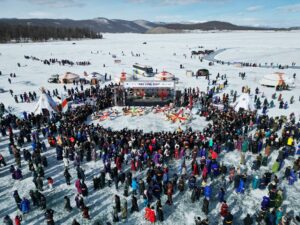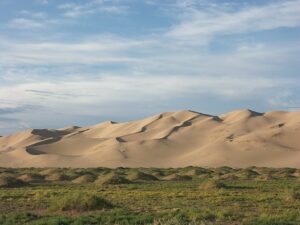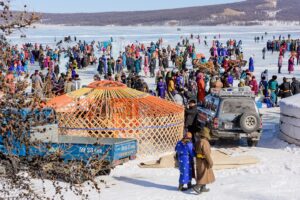The core of the nomadic civilization is nature, human beings, and herds as well as their mutual co-existence by depending on each other.
The act of co-existing and being dependent on one another is a way of nomadic animal husbandry.
Animal husbandry has always been the mainstay of the Mongolian economy, providing food, clothing, transportation, and as the main source of nomads economy. It was mentioned that the establishment of the “Livestock Institute for Livestock Management in 1323”, which periodically conducted livestock censuses, stamps, and accounts in three languages: Mongolian, Uighur, and Chinese.
Mongolia is the only country in the world where the same species is called differently. For example, a one-year-old horse is called a unaga (foal), a two-year-old is called a daaga, and there are 54 names for horses, 32 for cattle, 22 for sheep, 16 for goats, and 30 for camels.
Each region of Mongolia has a different climate some regions will reach minus 40 during winter and in some regions, it will be more than 40 celsius during summer. Herds will lose weight during the long winter and some cold winters known as “zud” many would not survive, they will breed in the spring, and will regain their health in the summer, and will gain weight in the autumn as preparation for the long cold winter.
Greetings of herders are also related to their way of living or livestock. When nomads meet each other during the summer most likely the first sentence they would say is Та тарган тавтай хаваржиж байна уу literally means “Is your spring being fat? The literal translation is quite hard to comprehend for non-nomadic people. It simply means that “Is your herd healthy and well during the spring”.
Here are a few unique differences in the behavior of different animals:
Camels are loved saline, likes to have long-distance grazing from human, very gentle, very tolerant in heat and cold, do not run away or spook during the strong wind, could be long-lasting without water and nutrients (100 days without water) In the summer, the camel’s behavior changes dramatically, especially during the mating season. Camel gives birth year after breeding, camels do not lick newborns, so the newborn is weak and has to be cared by people, and it takes a long time to become a grown-up camel.





